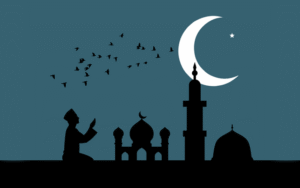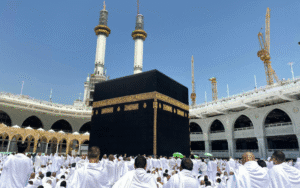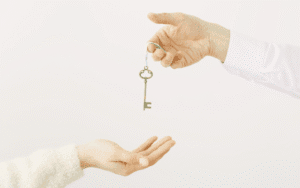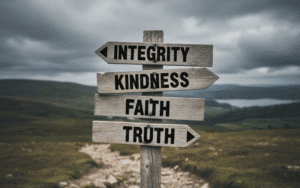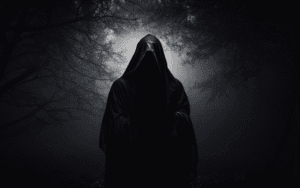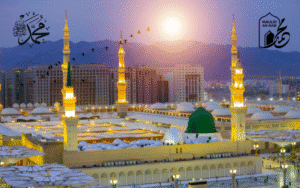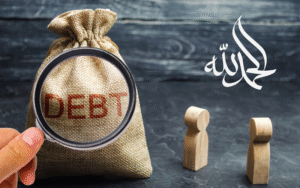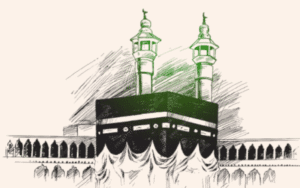Shab e Barat: A Complete Guide to the Night of Forgiveness
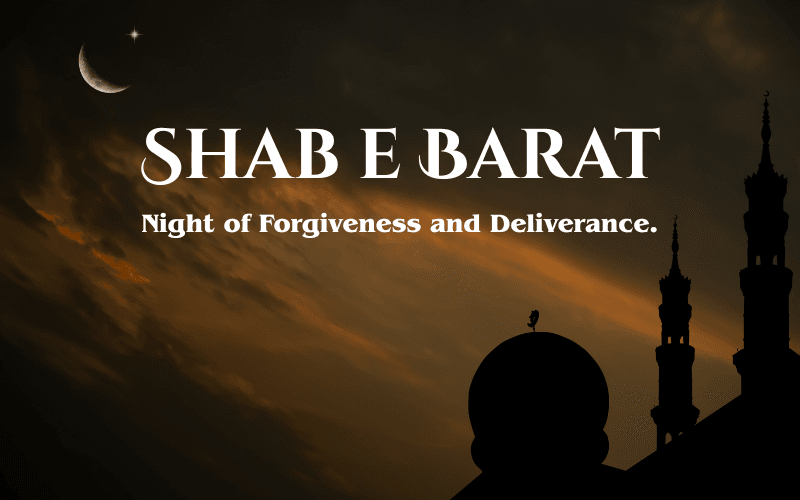
The middle night of Shaban, the eighth month of the Islamic calendar, holds a special place in many Muslim societies. We know it as Shab e Barat, a night observed with deep religious feeling and often called the Night of Forgiveness. People want to learn more about Shab e Barat because of its cultural importance. But what is its true significance, and what basis does it have in the Quran and authentic Hadith? In this complete guide, we will explore the meaning of Shab e Barat, its virtues, common beliefs, and the actions we should and should not take.
What is Shab e Barat? Understanding Its Name and Origin
The term “Shab e Barat” comes from the Persian language. ‘Shab’ means night, and ‘Barat’ means salvation or deliverance. Therefore, its literal meaning is the “Night of Salvation.” In Arabic, people call this night “Laylatun Nisfi min Shaban,” which translates to “the night of the middle of Shaban.”
This special night is known by several beautiful names:
- Laylat al-Bara’at: The Night of Freedom from sins and salvation from Hellfire.
- Laylat al-Mubarakah: The Blessed Night.
- Laylat as-Sak: The Night of the Decree, when destinies are affirmed.
The importance of this night stems from the belief that Allah forgives countless servants and determines their fate for the coming year, making it a pivotal Night of Forgiveness for many.
The Quran and the True Significance of the Night of Forgiveness
When we discuss the Shab e Barat significance, it’s essential to first see if the Quran directly mentions it.
1. The Interpretation of Surah Ad-Dukhan
Some scholars present verses 3 and 4 of Surah Ad-Dukhan as evidence for Shab e Barat. Allah (SWT) says:
إِنَّاأَنزَلْنَاهُفِيلَيْلَةٍمُّبَارَكَةٍۚإِنَّاكُنَّامُنذِرِينَفِيهَايُفْرَقُكُلُّأَمْرٍحَكِيمٍ
“Indeed, We sent it down during a blessed night. Indeed, We were to warn [mankind]. On that night is made distinct every precise matter.”
(Surah Ad-Dukhan, 44:3-4)
Scholars have two primary opinions about which night this “blessed night” is:
- The Majority Scholarly Opinion: Most commentators, including the renowned scholar Hafiz Ibn Kathir, state that the “blessed night” here is Laylat al-Qadr (the Night of Power). Their main argument is that Allah clarifies this elsewhere. He says in Surah Al-Qadr, “Indeed, We sent the Qur’an down during the Night of Decree.” (Surah Al-Qadr, 97:1). He also says in Surah Al-Baqarah, “The month of Ramadan [is that] in which was revealed the Qur’an.” (Surah Al-Baqarah, 2:185). Since the Quran was revealed on Laylat al-Qadr during Ramadan, they conclude this is the “blessed night.”
- An Alternative View: On the other hand, some commentators, like Ikrimah, believed this verse refers to the middle night of Shaban. They held that on this night, the decrees for the coming year—such as provisions, births, and deaths—are finalized and given to the angels.
2. Does Our Destiny Change on Shab e Barat? The Concept of Taqdir
Many people believe our destiny is written anew on Shab e Barat. However, this idea does not fully align with the core Islamic belief in Taqdir (predestination). Authentic hadith confirm that Allah wrote our destiny fifty thousand years before He even created the universe. The Prophet Muhammad (ﷺ) said:
“Allah had written the decrees of the creation fifty thousand years before He created the heavens and the earth.”
(Sahih Muslim, Hadith: 2653; Mishkat al-Masabih, Hadith: 79)
In another hadith, the Prophet (ﷺ) told Abu Hurairah (RA),
“Whatever is destined to happen to you will happen; the pen has dried.”
(Sahih al-Bukhari, Hadith: 5076)
These hadiths make it clear that our destiny is preordained. The correct interpretation of Surah Ad-Dukhan is that on Laylat al-Qadr, the annual decrees are transferred from the Preserved Tablet to the angels. The idea that destiny is written from scratch every year on Shab e Barat is not supported by authentic evidence.
15 Shaban Importance in Islam: What the Hadith Say
We find several hadith that discuss the virtues of the middle of Shaban. Scholars have differing opinions on the authenticity of these narrations. Let’s review some of the most well-known hadith and their scholarly analysis.
1. The Proclamation of Widespread Forgiveness:
It is narrated from Mu’adh ibn Jabal (RA) that the Prophet Muhammad (ﷺ) said:
“Allah looks at His creation on the night of the middle of Shaban and forgives all of His creation, except for the polytheist and the one who holds a grudge.”
(Sahih Ibn Hibban, Hadith: 5665)
Many hadith scholars, including Sheikh al-Albani, have graded this hadith as “Sahih” (authentic) or “Hasan” (good) because it has multiple chains of narration. This is the strongest evidence for the virtue of this night. It truly makes it a Night of Forgiveness, but it sets clear conditions: one must be free from shirk (polytheism) and malice.
2. Praying at Night and Fasting During the Day:
A hadith from Ali (RA) states, “When the middle night of Shaban comes, spend its night in prayer and fast on its day.” (Sunan Ibn Majah, Hadith: 1388)
- Analysis: Hadith scholars have graded this narration’s chain as extremely weak. Some have even classified it as “Mawdu” or “fabricated.” Sheikh al-Albani included it in his collection of weak narrations, “Silsilah al-Da’ifah” (Hadith: 2132). Therefore, a specific Shab e Barat fasting based on this is not established.
3. Allah’s Descent to the Lowest Heaven:
The same weak hadith claims that on this night, Allah descends to the lowest heaven to call out to His servants.
- Analysis: This idea contradicts more authentic hadith. In Sahih al-Bukhari and Sahih Muslim, narrations from nearly 30 companions confirm that Allah (SWT) descends to the lowest heaven during the last third of every single night, calling out to His servants until Fajr. (Sahih al-Bukhari, Hadith: 1145; Sahih Muslim, Hadith: 758)
4. Visiting Graves and Forgiving Innumerable People:
A hadith from Aisha (RA) mentions the Prophet (ﷺ) went to the Baqi’ cemetery on this night. It also says Allah forgives more people than the number of hairs on the sheep of the Banu Kalb community. (Sunan al-Tirmidhi, Hadith: 739)
- Analysis: Imam al-Tirmidhi and other scholars have also classified this narration’s chain as “Da’if” (weak) and “Munqati'” (broken chain).
In Summary: A full analysis of the hadith shows that Allah forgiving His servants on this night (except the polytheist and the hateful) is an acceptable virtue. However, no reliable hadith prescribe a specific Shab e Barat prayer, fast, or any other ritual exclusively for this night.
Common Traditions vs. Authentic Practices: Debunking Myths
Over time, certain customs without Islamic basis have become associated with Shab e Barat. Let’s look at some of these to separate fact from fiction.
Making Halwa-Roti (A special sweet and bread): People often make a sweet dish called halwa to mark this night. A common story says the Prophet (ﷺ)’s tooth was martyred in the Battle of Uhud, so he ate this soft food. This is a completely baseless and fabricated tale. The Battle of Uhud took place in the month of Shawwal, not Shaban. This tradition has no connection to the events of the Prophet’s life.
The Belief in the Return of Souls: Some people believe the souls of the deceased return to visit their relatives. This idea directly contradicts a clear verse of the Holy Quran. Allah (SWT) says about the deceased, “And behind them is a barrier (Barzakh) until the Day they are resurrected.” (Surah Al-Mu’minun, 23:100). This verse makes it clear that souls do not return to this world after death.
Elaborate Decorations and Lighting Candles: Extensively decorating homes and mosques with lights is not part of Islamic culture. It is a form of extravagance and wastefulness, which Islam forbids. Lighting candles to welcome souls or brighten one’s fortune is simply superstition and has no basis in the faith.
Setting off Firecrackers and Fireworks: Celebrating with fireworks is a sinful and forbidden act. It wastes money, severely disturbs community peace, and causes distress to the sick, children, and older people. These actions contradict the solemn and reflective spirit of this Night of Forgiveness.
The 100-Rakat Prayer (‘Salat al-Alfiyah’): The practice of performing a special 100-rakat Shab e Barat prayer is not from the Sunnah. Hadith scholars have deemed all narrations about it as “Mawdu” (fabricated). The renowned Hanafi scholar Mulla Ali al-Qari noted that this innovated prayer first appeared in the year 448 AH in Jerusalem. It did not exist during the time of the Prophet (ﷺ) or his companions.
Embracing the True Spirit of the Night of Forgiveness
By avoiding all exaggeration and religious innovations (bid’ah), we can seek the blessings of this month and night through the following authentic practices:
- Increase Voluntary Fasting in Shaban: The Prophet (ﷺ) used to fast frequently throughout Shaban. Aisha (RA) said, “I never saw the Messenger of Allah (ﷺ) fast for a complete month except for Ramadan, and I never saw him fast more in any month than he did in Shaban.” (Sahih al-Bukhari, Hadith: 1969; Sahih Muslim, Hadith: 1156)
- Purify the Heart from Shirk and Grudges: The key to receiving mercy on this night is to purify one’s heart from shirk (associating partners with Allah) and from hatred towards others. This is the central lesson of this Night of Forgiveness.
- Prioritize Obligatory Worship (Fardh): Obligatory acts are far more important than optional ones. Staying up for voluntary prayers but then missing the obligatory Fajr prayer is a grave mistake. We must give the highest priority to performing Isha and Fajr prayers in congregation.
- Engage in Private, Individual Worship: If you wish to perform acts of worship, do so individually at home. You can perform voluntary prayers, recite the Holy Quran, engage in dhikr (remembrance of Allah), and make sincere dua for yourself, your family, and the entire Muslim Ummah.
- Seek Forgiveness Through Repentance (Tawbah): Sincerely repenting for your sins and seeking Allah’s forgiveness is the most meaningful act you can perform.
A Special Note: Those who regularly fast the “Ayyam al-Beed” (13th, 14th, and 15th of each lunar month) may continue this practice in Shaban. However, no authentic evidence singles out the 15th of Shaban for a fast with special virtue.
Final Thoughts: Living the Message of the Night
In conclusion, the middle night of Shaban is a virtuous night where Allah (SWT) bestows His mercy. However, most of the rituals common in our societies are later additions and not from the authentic teachings of Islam. Our duty is to reject all superstitions and live our lives in the light of the Quran and the authentic Sunnah. May Allah grant us the understanding to embrace the true spirit of this night and act upon it correctly. Ameen!
Frequently Asked Questions
What is the most authentic deed for Shab e Barat?
The most authentic deed is seeking forgiveness (Tawbah) and ensuring your heart is free from shirk and hatred, as per the strong Hadith on widespread forgiveness.
Is there a special fast for Shab e Barat?
No. There is no authentic Hadith that prescribes a specific fast exclusively for the 15th of Shaban. Fasting is only recommended if it is a regular habit.
When is Shab e Barat?
Shab e Barat is the middle night of the Islamic month of Shaban (the 15th night), which is the eighth month of the Islamic calendar.
